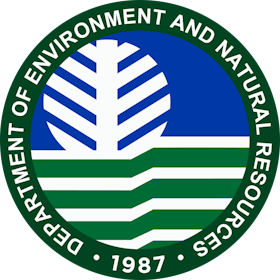Environmental experts and policymakers encourage the acceleration of circular economy principles as a means to buy time to put more concrete measures in place to reduce greenhouse gases.
In a forum hosted by the Philippine Government and the United Nations Development Programme (UNDP) during the 2023 United Nations Climate Change Conference, more commonly known as COP28, panellists emphasised the transformative potential of circular economy in achieving climate targets and its pivotal role in addressing the triple planetary crisis of climate change, biodiversity loss, and pollution.
Undersecretary Analiza Rebuelta-Teh of the Department of Environment and Natural Resources (DENR) and Undersecretary Maria Luwalhati Dorotan-Tiuseco of the Department of Finance (DOF) of the Philippine Government; Ms Aurelie Godefroy, Deputy Head of Unit of INTPA-F2 – Environment, Sustainable Natural Resources of the European Union; Mr Martijn Lopes Cardozo, CEO of Circle Economy Foundation; and Mr Pradeep Kurukulasuriya, Executive Coordinator & Director - Environmental Finance of UNDP, gathered at the COP28 Philippine Pavilion for this important dialogue, moderated by Ms Alana Craigen, UNDP Climate Policy Coordinator.
As a country highly vulnerable to climate risks, the Philippines has taken significant strides in transitioning to a circular economy. In her message, DENR Secretary Antonia Yulo Loyzaga hailed the landmark Extended Producer Responsibility (EPR) Law enacted in 2022 which addresses waste reduction, recovery, recycling, product design, and producers’ full responsibility throughout the life cycle of their product. “The old paradigm of irresponsible production and consumption no longer has a place in this new vision that we are creating into reality,” said Secretary Loyzaga.
DOF Undersecretary Tiuseco highlighted incentive mechanisms in place facilitating the EPR Act implementation and circular and green economy initiatives, as well as legislations being pushed, including the imposition of excise tax on single-use plastics. DOF also spearheaded the development of the Sustainable Finance Roadmap, which provides the enabling environment and policy signals to support the Philippines’ transition into a low carbon and climate-resilient economy.
Meanwhile, DENR Undersecretary Teh emphasised the integration of the informal sector into the circular economy value chain and the implementation of the Philippine Green Jobs Act, in collaboration with the Department of Labor and Employment. This supports re-skilling and provides social safety nets for those affected to ensure an inclusive and just transition.
Ms Aurelie Godefroy of the European Union recognised that circular economy is key to addressing climate change. With the European Union placing the circular economy on top of its agenda, a whole-of-government approach, tied with policy and social interventions, is necessary to enable circularity and rally the support of stakeholders. For his part, Mr Cardozo underscored the potential of a circular economy to mitigate 40 per cent of global greenhouse gas emissions.
Acknowledging the leadership shown by countries like the Philippines in institutionalizing circularity, Mr Kurukulasuriya emphasised the need for more decisive and quicker solutions. He called for strategic partnerships and actions to shift from rhetoric to concrete steps while reiterating UNDP’s support to collectively achieve ambitious goals.
Recently, the Philippine Government and the European Union recently signed a EUR 60 million financing agreement to support this ambition through the Green Economy Programme in the Philippines. Led by DENR, the programme aims to support the country’s transition to a green economy, including circular economy practices, waste reduction, plastic mitigation, energy efficiency, and renewable energy deployment for climate change mitigation.
Implemented in partnership with UNDP, GIZ, Expertise France, and the International Finance Corporation, the programme will focus on national policy and dialogue, empowering local governments, engaging the private sector, and facilitating learning exchanges with EU member states.
Publish your content with EB Premium
It's not about how many you reach. It's about who. Get your news, events, jobs and thought leadership seen by those who matter to you.


















